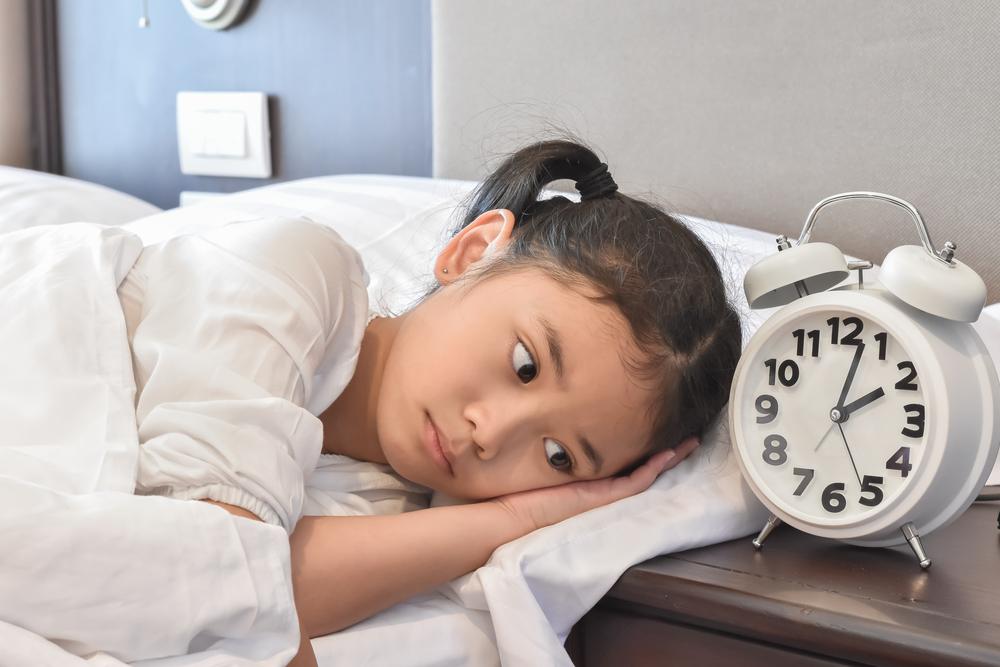5 Signs Your Child Might Be Having a Sleep Disorder
Sleep disorders have consequences similar to fatigue, anxiety, depression, unhealthy cravings, and loss of metabolism. Inadequate and inappropriate sleep weakens your cognitive capabilities, disrupts the circadian rhythm of the body and increases susceptibility towards diseases. When children are responsive to these symptoms, it indicates sleep disorders and becomes a matter of concern to parents.
Recent studies have found that 30% of the children suffer from sleep-related disorders. In such cases, parents must be observant and must get into reasons behind sleep disorders that affect kids.

Parents must know how many hours of sleep is required for children. A newborn requires a good-night sleep for almost 16-17 hours a day. When children slowly begin growing up, they require a 14-hour sleep schedule. The sleep duration gradually decreases with age, but 8-10 hours of sleep is required for children below 18 years.
Take a look at a few symptoms of sleep disorders in children. Identifying these can help parents take precautions in advance.
Sleepwalking
It is common problem among children. Most often undecipherable mumbling is accompanied with sleepwalking. This sleepwalking episode can continue up to 15 minutes, which can be dangerous as they are in a subconscious state and are unable to realize they are walking around. If your home has staircases, thresholds or unwanted obstacles, it can be dangerous for your child. Hence it is important to be watchful and observant. As preventive measures, doors can be bolted, and the environment of the house can be made childproof. It is highly recommended to avoid interfering with a child’s sleepwalking, as it can cause unnecessary fear and confusion in their mind. A child counselor or doctor can be consulted if this situation requires expert advice.
Bedwetting
Bedwetting or enuresis can be a major concern, as it implies a type of sleep disorder in kids. Some reasons behind bedwetting might be development lags, stressed emotions, or bladder control related issues. If a child wets his/her bed in the morning and seems sleep deprived or lethargic, there is a high chance of him/her suffering from obstructive sleep apnea.
Nightmares
Some dreams can be frightful, even for adults. Rapid-eye-movement or REM sleep constitutes 20-25% of sleep time and unpleasant dreams tend to wake children up during the REM sleep hour. Children aging from 6-10 years remain sensitive to such dreams, which cause significant sleep disturbances leading to anxiety and behavioral problems.
Night terrors are accompanied by sweating, rapid breathing, muscle tension, and increased heartbeat. Although these episodes cannot last for more than 5-10 minutes, it can potentially damage the entire sleep cycle. Bullying is often considered a significant reason for such parasomnia and linked to the immature central nervous system.
Excessive daytime sleeping
Children who have sleep disorders at nighttime will generally face daytime drowsiness. Although short naps are not a major concern, certain specific diseases are linked with daytime sleepiness, such as obstructive sleep apnea, narcolepsy, and restless leg syndrome. Sleeping problems in children are caused due to family issues, social pressures, school, and daily environments
Snoring
Nasal congestion or excessive exhaustion in a child’s daily routine can be the reason behind snoring. This sound is produced by vibrations in the upper airway of the nose. A blockage is created in the lungs as air cannot reach it properly. Snoring often leads to a sleep disorder that impacts kids. Enlarged tonsils, respiratory infection or usual congestion can be reasons for the same. These were some of the signs, which suggest that your child could be facing sleeping problems. Parents must create bedtime routines and narrate bedtime stories to their children, in addition to maintaining a calm environment. Parents must make sure to regulate playtime hours, television hours and reading hours, and avoid excess activity before bedtime. In the case of emergencies, the child must be taken to a doctor for further help and assistance.



